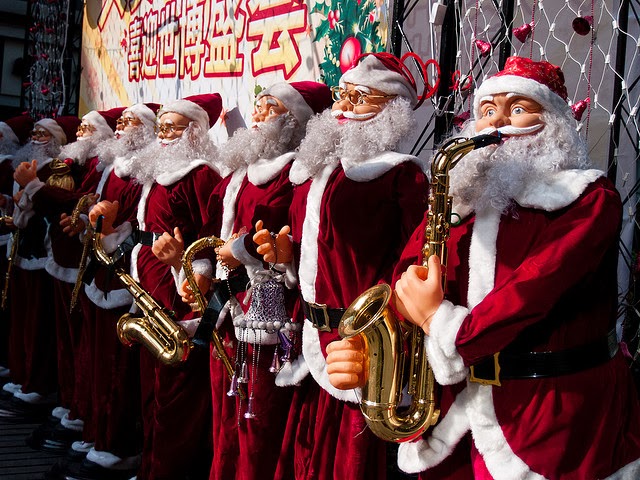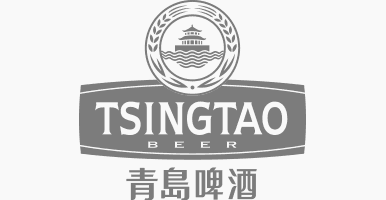It may be strange to think about anyone not celebrating Christmas, but for countries like China where Christianity is not the main religion, Christmas is much less of an occasion. Only about 1% of China’s population are Christians, so the wintertime holiday has largely been stripped of its religious roots and is rarely celebrated outside of the country’s biggest cities.

In places such as Beijing, Shanghai, Guangzhou and Hong Kong, where the Western world’s influence is heavily felt, Christmas is something of a party. Gift buying, decorations and large feasts are all popular, with only a small sprinkling of traditional Christmas activities such as carolling, sermons and nativity scenes popping up. In fact, many Chinese people don’t know who Jesus is, and many will happily sing along to Christmas songs even though they do not know the meaning behind the words. If you’re likely to hear any Christmas-related song though, ‘Jingle Bells’ seems to be a particular favourite among the Chinese.
Sheng Dan Lao Ren

Whilst the religious affiliations of Christmas are becoming less prominent in some parts of the Western World, never is Santa Claus more of an icon instead of the Nativity than in China. For the Chinese, Santa is the emblem of the Christmas holidays.
Otherwise named Sheng Dan Lao Ren (literally translating to ‘Old Christmas Man’), Father Christmas is a beacon of goodwill and gifts, thought to “bring the gift of happiness” to children (and adults) across the country. The magic of Santa is well received among Chinese children who hang up muslin stockings in the hope of bountiful gifts and treats come the morning.
Sheng Dan Lao Ren’s motto of goodwill is very reminiscent of that of the Laughing Buddha. Giving thanks to their ancestors is a primary philosophy of Chinese people, and come Christmastime goodwill and generosity are extended further through acts of philanthropy to those in need, especially the elderly and children.
Shopping Mall Frenzies

One place that fully embraces Christmastime is the shopping malls across China’s main areas. The holiday is mostly a commercial event, with China Daily even suggesting that Christmas Eve is the biggest shopping day of the year. You can expect to see large festive decorations similar to those found across America and Europe, including plenty of Christmas trees decorated with lights and paper chains, flowers and lanterns.

Many malls also have pop-up grottos where children can visit Santa. But, carrying on with the culture’s love of the bearded old man, there is never just one Santa. It is quite common to see a pack of Santas in China, along with a host of women dressed as Santa’s ‘friends’ or ‘sisters’. Although Santa’s little helpers are usually depicted as elves, this is something that’s definitely been lost in translation. There are also often parades of Santas in the streets or performing bands dressed in the typical red coat and hat.
Gift buying is one of the main aspects of Christmas. Lots of people see the holiday as a chance to celebrate with family and friends, exchanging small gifts and trinkets. In particular though, Christmas has strong associations with romance – much of the younger generation herald the holiday as a chance to be romantic, date, and impress their new partner with a shower of gifts. Ice-skating and amusement parks are popular places to go to on dates, in keeping with the festivities.
Feasts Without the Turkey
There’s no denying that China has its very own delicacies and fusion cuisine. Much of the food that’s eaten over the Christmas period is similar to that served during the country’s own major celebrations, like Chinese New Year. Favourite meals include roast-barbecued pork, chicken dishes, and various soups.

One thing very unique to China is the common gift of ‘Christmas apples’. In Mandarin the word ‘apple’ sounds similar to the word ‘peace’, sparking the country’s very own tradition of giving cellophane-wrapped apples. The apples are given on Christmas Eve due to the word meaning ‘peaceful’ or ‘quiet evening’ in Chinese. They are often printed with holiday messages and symbols – plenty of Santas again!
WinterFest in Hong Kong
If you plan to go anywhere in China to celebrate Christmas, Hong Kong is considered the best place. In fact, it’s been named one of the best destinations in the whole world to enjoy the festive period.

Hong Kong hosts it’s own festival throughout December – WinterFest – to tie in with Christmastime. The area becomes even more glamorous with all of the buildings and streets lit up, casting an impressive glow across the surrounding waters. Statue Square plays host to an iconic Christmas tree, firework displays take off across the city, and Victoria Harbour welcomes the annual Symphony of Lights LED show every night.
The party atmosphere switches things up to a new level come 31st December with huge crowds congregating by Victoria Harbour and the Tsim Sha Tsui waterfront for the New Year countdown and celebrations.
Christmas may hold different values in China, but for the most part many of the celebrations are similar to those enjoyed in the Western World, albeit with a Chinese stamp.

Whether you choose to celebrate Christmas in the East or West, you can merge bridges by wishing your friends a Merry Christmas in Mandarin (Sheng Dan Kuai) or Cantonese (Sena Dan Fai Lok).
Click here to see Cathay Pacific’s Winter Sale if you’re planning a trip to China in 2018.


